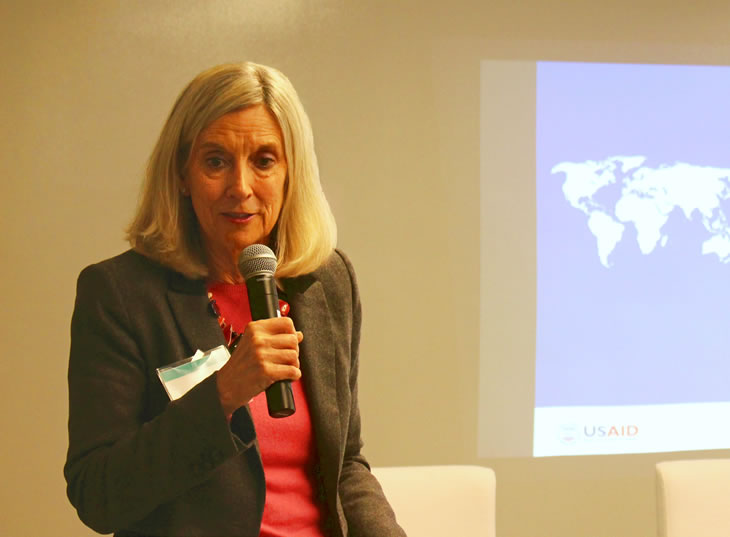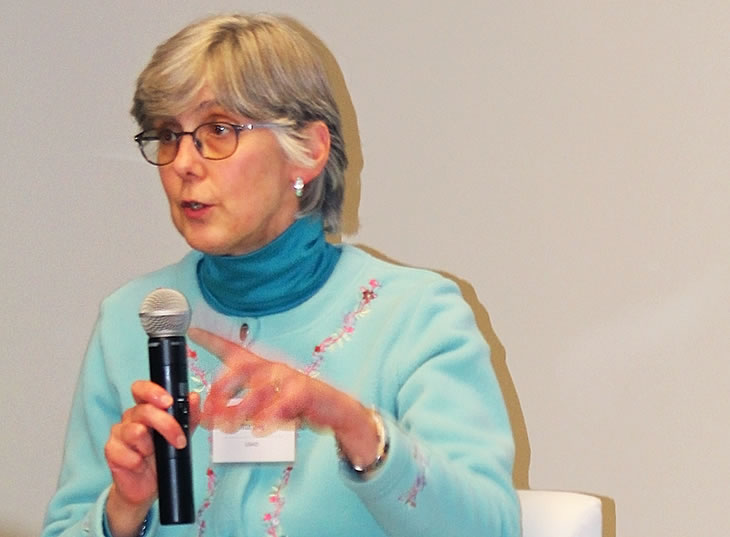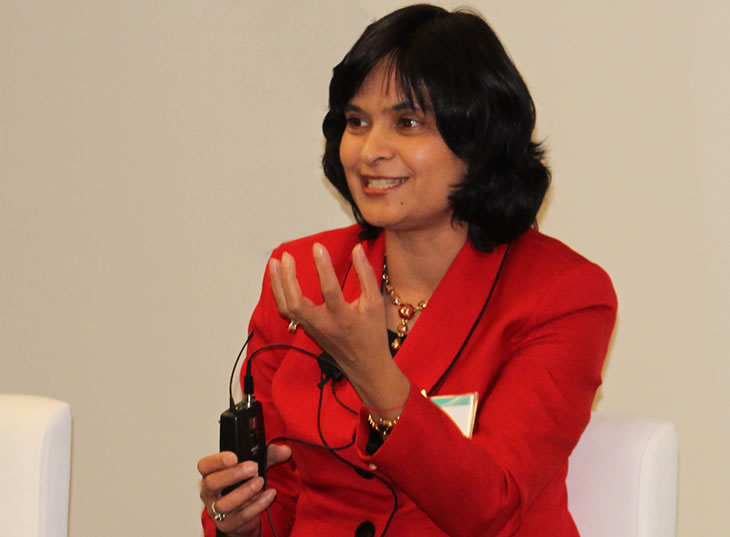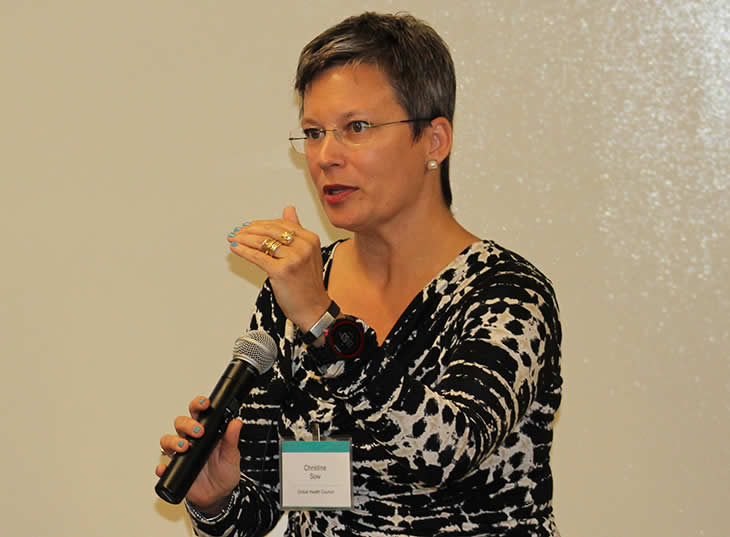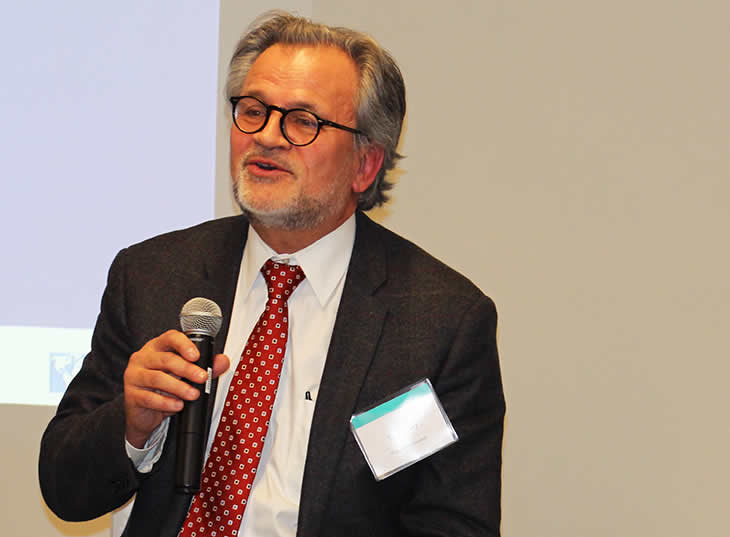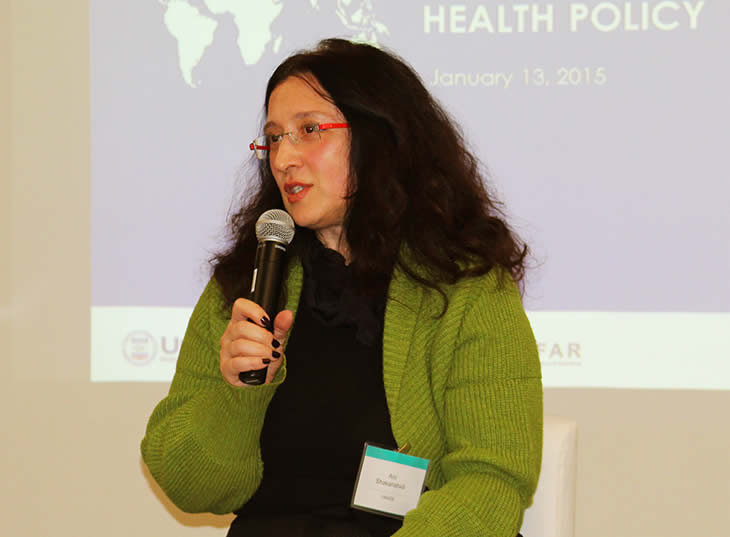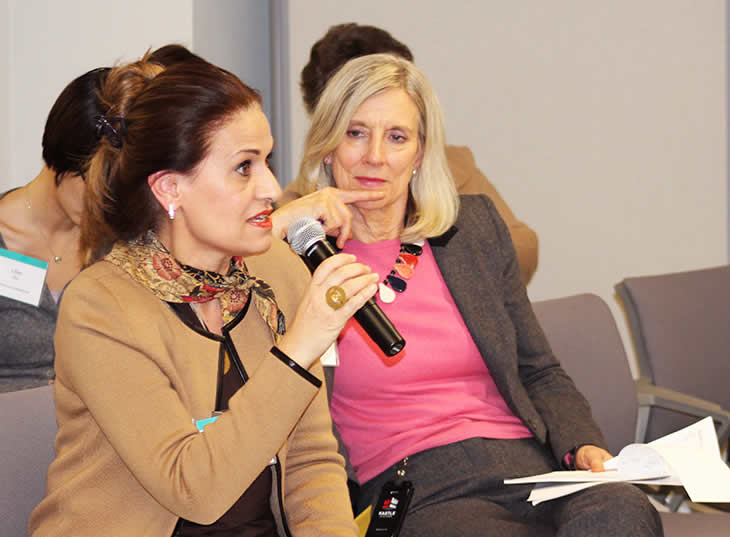The Health Policy Project ended in 2016. Work continued under Health Policy Plus (HP+) until 2022.
NEWS & VIEWS
WASHINGTON, DC—Global health leaders came together on the afternoon of January 13 to share their views on sustainable responses to the changing landscape of development work. The Health Policy Project (HPP), which is funded by the U.S. Agency for International Development (USAID) and the U.S. President’s Emergency Plan for AIDS Relief, convened the forum at its new Washington, DC office. More than 100 guests attended, representing diverse sectors of the global health community.
Speakers at the event included Ellen Starbird, director of USAID’s Office of Population and Reproductive Health, who gave the keynote address; Suneeta Sharma, HPP’s director; Ani Shakarishvili, M.D., senior adviser in the U.S. Office of the Joint United Nations Programme on HIV/AIDS (UNAIDS); Christine Sow, executive director of the Global Health Council; and John Townsend, vice president of the Population Council. Todd Summers, senior adviser at the Center for Strategic and International Studies, moderated the panel.
Mr. Summers compared the difference between development work “that translates easily into lives saved and therefore has a political attraction, such as treating people with AIDS” and “nastier, longer, muckier work, such as health systems strengthening, which can show benefits only in the long term, and usually far beyond” what is compelling “in the political sphere.” When asked how she makes the case for this effort, both within and outside USAID, Ms. Starbird responded
“Policy is foundational in creating lasting change. You can do things in the absence of policy, but ultimately it’s going to come back and bite you somehow. In study after study, building champions and getting policy right. . . make things move.”
According to Ms. Starbird, health policy’s evolution over the past 50 years—“from a time when pronatalist policies were the norm to today, when the multiple benefits of voluntary family planning and reproductive health programs are increasingly understood and valued”—created the foundation for a “remarkable improvement in health outcomes.” Examples include dramatic increases in modern contraceptive prevalence and decreases in maternal and child mortality. However, she remarked that much work remains to be done; this, too, will require a robust policy environment with wide participation. For this reason, Ms. Starbird remarked that health policy must be treated “as a global public good”—essential “to the sustainability of all of our health activities and programs.”
Sustaining U.S. Investments: The Future of Global Health Policy
Dr. Sharma noted Ms. Starbird’s emphasis on wide participation in policy development, stressing the importance of “placing people at the center of health policy.” She cited the promotion of equity, inclusivity, and human rights as one of five ways that health policy can prepare low- and middle-income countries and their development partners to adapt to ongoing and emerging challenges in the global health landscape. The other four, she added, are to “build strong, resilient health systems; support local health governance; strengthen the accountability of government institutions, public officials, and health service providers; and ensure sustainable health financing from global to local levels.”
See Beyond 2015: How Health Policy Can Help Countries Prepare for the Future for the Health Policy Project’s perspectives on how this global public good can prepare low- and middle-income countries and their development partners to adapt to ongoing and emerging challenges in the global health landscape.
What's New
- Something to Build On: “Innovation Exchange” Celebrates the Health Policy Project’s Close and a New Beginning
- What Will it Take for Tanzania to Achieve ART Targets and Ensure Long-Term Sustainability of the HIV Response?
- Helping Kenya’s County Leaders Advocate for Increased Health Investments
- HPP Holds Working Meeting on Ensuring Responsible PEPFAR Transitions for Key Populations
- Health Policy Project Celebrates 2016 International Women's Day
- HPP Staff Participate in White House Conference on HIV Stigma Reduction



